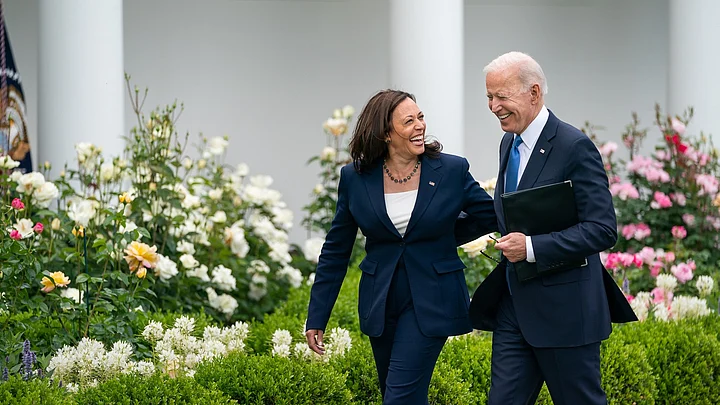On 31 March 1968, faced with widespread domestic protests, especially on university campuses, over his conduct of the Vietnam War, President Lyndon Johnson, announced on national television that he would not seek his party’s nomination for the presidency. The Democratic National Convention (DNC), which was held in Chicago, proved to be chaotic with the local police viciously attacking anti-war protestors outside the convention venue.
Within the venue itself the party split between the supporters of the antiwar candidate Senator Eugene McCarthy, and the pro-war candidate, Vice-President Hubert Humphrey.
After a bitter, internecine fight among the delegates, Humphrey was selected as the Democratic Presidential candidate. That November he went down in defeat, to the Republican Presidential candidate, Richard Nixon. Humphrey made a second bid for the presidency in 1972 but lost the nomination to Senator George McGovern. McGovern, in turn, lost the presidency, once again, to Richard Nixon.
There is no way of predicting whether or not this historical precedent has any bearing on President Joe Biden’s decision on the afternoon of 21 July not to seek his party’s nomination in the upcoming DNC in Chicago next month.
As he withdrew from the presidential race, he passed the baton to Vice-President Kamala Harris.
Endorsing Kamala
Not endorsing Harris could have further divided a party that has its share of ideological, generational and other cleavages. Harris, who was the junior Senator from California, before becoming his Vice-President, is of mixed parentage. Her mother was from India and her father was from Jamaica.
Her mixed ancestry holds much appeal for a significant swath of the Democratic Party. African American voters, mostly tend to see her as one of their own. Indian Americans, though small in numbers, are nevertheless likely to support her in key constituencies and states. She is also likely to appeal to a range of professional women.
Given these three sources of electoral appeal, it is highly unlikely that anyone else from within the Democratic fold will challenge her candidacy at the upcoming convention. Doing so would only create further fissures within the party and at this late hour. Furthermore, since a challenger is unlikely to inherit Biden’s substantial campaign chest and will not receive his political imprimatur, he or she is unlikely to garner much, if any, traction.
The appeal of her ethnic background aside, her candidacy has two other significant advantages. Despite an otherwise lackluster performance as Biden’s Vice-President, she has been a forceful and articulate exponent on the fraught question of abortion sharply challenging the highly controversial Supreme Court judgment of earlier this year that shifted the issue to individual states.
Trump’s campaign, which had made an issue of Biden’s age and an apparent decline in his cognitive abilities, has now been abruptly faced with an unexpected shift in the political tectonic plates. Now the Democrats, if they so choose to, can highlight Trump’s age along with his bizarre statements at campaign rallies as signs of his own physical and mental infirmities. Most importantly, Harris, who started her professional career as a public prosecutor, can easily trip Trump up during the next presidential debate highlighting his propensity to spew utter and rank nonsense.
Choosing a Running Mate
The most immediate question that Harris confronts is the matter of choosing a suitable running mate. Two considerations are likely to play a role as she makes a decision.
First, unlike Biden, she has little or no foreign policy experience. Consequently, she may decide to tap a Democratic Senator from a safe seat and with some foreign policy background to serve as her running mate.
Second, she may also wish to select a popular leader from one of the so-called “swing states” such as Arizona, Michigan or Pennsylvania which could move the state in the national election to the Democratic column. One person who could meet both criteria is Senator Mark Kelly, a former astronaut, military officer and also the current junior Senator from Arizona. How she balances these two important considerations will certainly bear watching in the next few weeks.
As she gears up for her campaign, given the highly polarised state of the country, and the norm-shredding propensity of many in the Trump camp, it is all but inevitable that Harris will have to deal with one or more frivolous lawsuits that will attempt to prevent her from accessing Biden’s substantial campaign war chest. These, however, are mostly going to prove to be an irksome distraction and are unlikely to succeed in the end.
Apart from selecting an appropriate running mate and dealing with these likely political shenanigans, the key task before Harris will be to infuse enthusiasm amongst the diverse Democratic electorate for her candidacy. Beyond that task, her most important challenge will be to take the fight directly to the Trump camp. In doing so, she must take into account that his vast campaign machine had already been anticipating the eventuality of her inheriting the Democratic presidential mantle. Her performance on the campaign trail in the next few weeks and at the Democratic National Convention should provide useful clues about her ability to grasp these particular nettles.
(Sumit Ganguly holds the Tagore Chair in Indian Cultures and Civilizations at Indiana University, Bloomington and is a Visiting Fellow at the Hoover Institution at Stanford University. This is an opinion piece and the views expressed are the author’s own. The Quint neither endorses nor is responsible for them.)
(At The Quint, we question everything. Play an active role in shaping our journalism by becoming a member today.)
